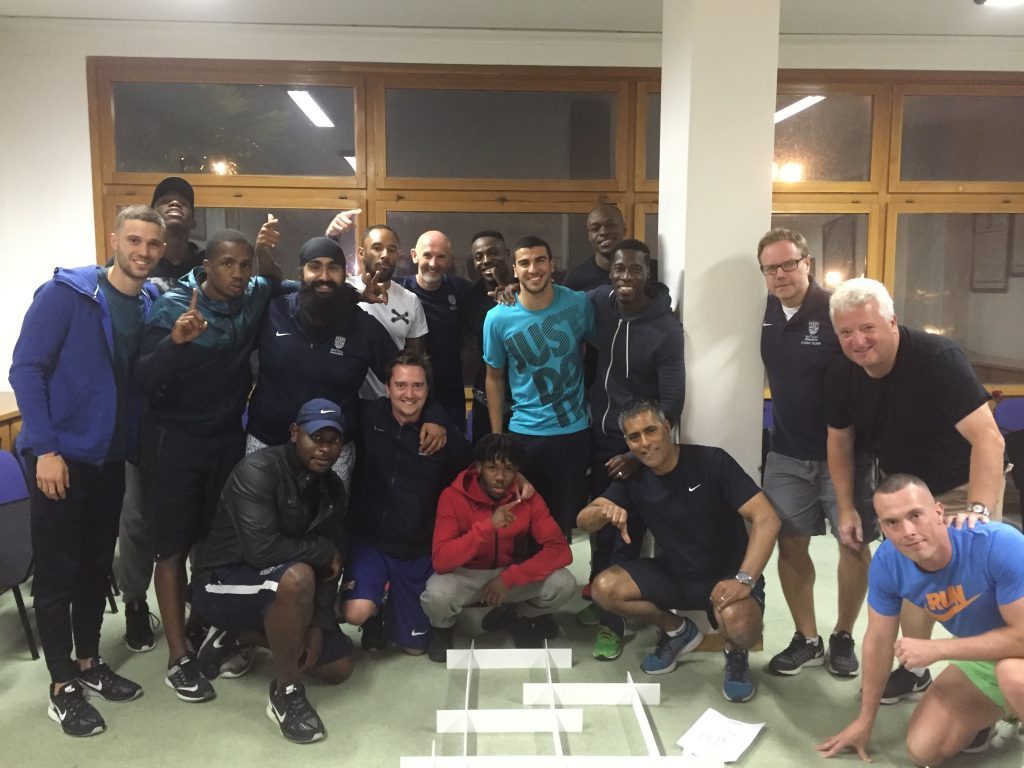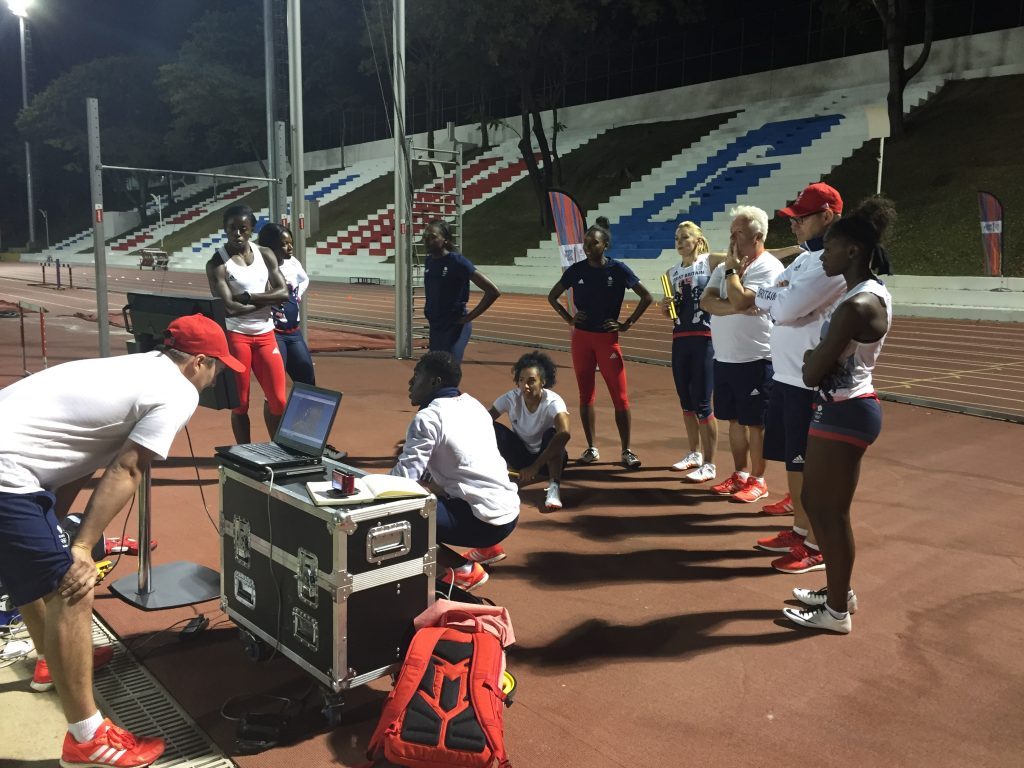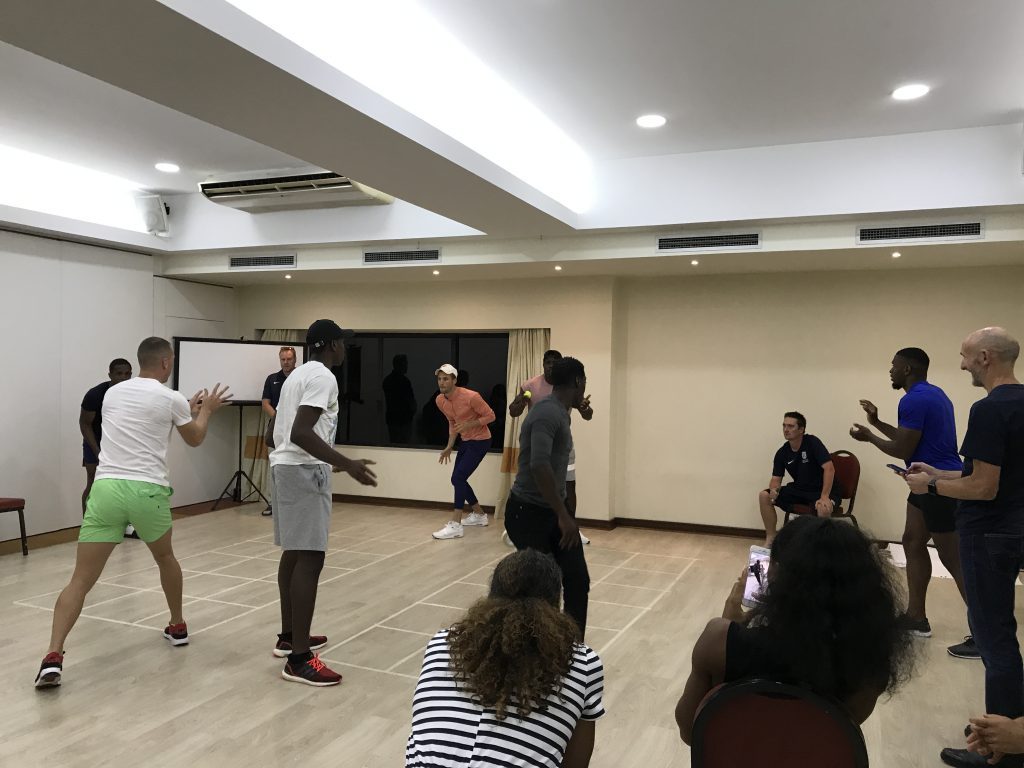The hidden work behind Great Britain's World Championships relay success
Over ten EIS practitioners currently work with British Athletics across a range of disciplines. One of the team is Lead Performance Psychologist Jennifer Savage. Part of Jennifer’s role has been to work with the relay teams who were so successful at the 2017 World Athletics Championships in London, winning a total of four medals.
In the article, Jennifer provides an insight into some of the work she does with the relay teams, including the theory, trust and teamwork behind the event.
“I was really pleased with the results we achieved in the relays at the World Championships, it was great to see things come together,” began Jennifer. “We’re not just pleased about the end result, it was also about how the results came about. Everything we had practised and worked towards came through in terms of team work, trust and all of the goals that we had set as a team- so that was very rewarding.

“The way I work with the relay team is a systematic approach. This was made possible by the fantastic leadership and vision from the head coach to utilise an innovative and interdisciplinary approach to the programme. We don’t just work with the team who are likely to run in the races, the programme encompasses the entire environment that the team is based within. This includes all of the processes surrounding the team, and anyone who works within the team so it’s about setting a culture within the relay programme. Everyone that works within the relay team was involved in the project leading up to the World Championships and we all had a common goal and an agreed way of working towards achieving that goal.
“It was very much a team effort across the board in terms of how all of the processes were delivered, down to how selection was communicated, how camps were put on, to how all support staff interacted and engaged with the team. Our communication had to be very reflective of the environment we were trying to create and that’s been something that’s integral to creating an environment and culture that’s sustainable.
“British Athletics have brought a new approach to the relay programme over the past few years through a systematic and collaborative approach, which the athletes have been very committed to its success. Athletics is, in effect, an individual sport so getting people to come together and create common goals and understand how to work with each other to accomplish that can be quite challenging but the athletes were very good at doing that. A key thing that we said from the beginning was that we weren’t trying to make best friends or play happy families, we are just trying to understand and respect each other and come together to do a job and all the team committed towards doing that. As a result, the teams have formed a strong bond with each member of the squad.

“Individual athletes are very used to dealing with pressure and they would have help and support in dealing with that in their individual psychology approach outside of the relay. The relay is very much focussed on collaborating and working effectively as team. There was dealing with pressure and being able to understand how each other cope with it and keep each other on track.
“Trust is a big thing with the programme. It was very much building towards the athletes reaching their potential and that comes from trusting in the programme. As a practitioner, you can only facilitate this up to a certain point as then it’s up to the athletes themselves to actually have that trust, and know that when they put their hand out, their team mate is going to be there at the changeover. Therefore, I have to give massive credit to the athletes for their hard work, commitment to the programme and each other, which shone through in the results they achieved in London. As a practitioner it is a privilege to work alongside and support such talented and driven athletes.
“There was also the trust that if something messed up there wasn’t going to be any sort of blame, everyone understood that these things happen and they would progress on regardless, so there was an early agreement of how they were going to deal with success and failure.
“With the team, we did various exercises such as challenging the athletes in various pressure scenarios to see how they would react and how they would work together as a team. We wanted them to understand how individuals react under pressure and therefore how they would react to those individuals under pressure which was a critical element of what we did going forward.
“I am a big believer in practical tasks. At the start, there was a lot of sitting down and talking in meetings and facilitating different conversations but whenever we were developing certain skills we needed to practically develop, test and refine them. In everything we did I tried to be as creative and inventive as I could to keep the team engaged and create that testing environment to see if anything needed to be improved. I always try to keep the learning as applied, engaging and as real as I could for the athletes.

“An important component to that, and something I’ve published research in is what we as practitioners can do to help develop and facilitate development. We realise that you can’t just throw a challenge in place without having first set the scene in terms of research and seeing if the athletes have the skills to handle the challenge we throw at them and also ensuring the right processes were in place to facilitate growth.
“The programme I work on is all year round- it’s a full-on programme that we are committed to developing and it’s not just about the World Championships or the next big event, it’s about sustainability and I have enjoyed being full immersed in developing this programme and its longevity going forward.
“The main message to get across is that there are four athletes on the podium but there is a big squad of athletes involved each year and without every single one of those members contributing throughout the year we wouldn’t be in the position we are now- it’s about investing in the entire squad and constantly looking for ways to improve and progress.”